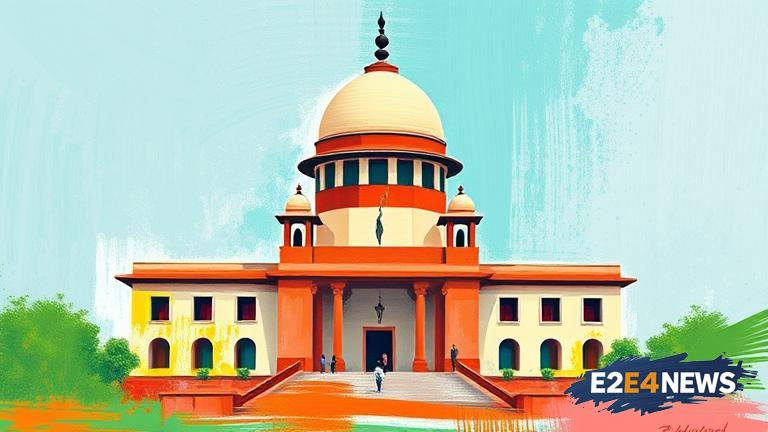The Supreme Court of India has taken a significant step towards regulating social media by directing the government to formulate guidelines for conduct on these platforms. This move is aimed at addressing the growing concerns over the misuse of social media, which has been linked to the spread of misinformation, hate speech, and other forms of online harassment. The court’s directive comes in response to a petition filed by a non-governmental organization (NGO) seeking stricter regulations on social media. The NGO had argued that the lack of effective regulations has led to the proliferation of fake news, online abuse, and other forms of cybercrime. The Supreme Court has given the government six weeks to come up with the guidelines, which will be applicable to all social media platforms operating in India. The guidelines are expected to cover a range of issues, including the removal of objectionable content, the verification of user accounts, and the prevention of online harassment. The court’s decision has been welcomed by many, who see it as a necessary step towards creating a safer and more responsible online environment. However, some have expressed concerns that the guidelines could be used to curb free speech and stifle online dissent. The Indian government has already begun the process of formulating the guidelines, with the Ministry of Electronics and Information Technology (MeitY) being tasked with the responsibility of drafting the regulations. The ministry has been holding consultations with various stakeholders, including social media companies, civil society organizations, and experts in the field of cybersecurity. The guidelines are expected to be based on the principles of transparency, accountability, and user safety. The Supreme Court’s directive is seen as a significant development in the ongoing debate over social media regulation in India. The country has been grappling with the challenges posed by social media for several years, with issues such as fake news, online abuse, and cybercrime becoming increasingly common. The government has been under pressure to take action, with many calling for stricter regulations on social media. The Supreme Court’s decision is expected to have far-reaching implications for social media companies operating in India, with many likely to be required to make significant changes to their policies and practices. The guidelines are also expected to have implications for users, who will be required to adhere to the new regulations. The Indian government has made it clear that it is committed to creating a safe and responsible online environment, and the Supreme Court’s directive is seen as a major step towards achieving this goal. The government has also emphasized the need for social media companies to be more transparent and accountable, and to take greater responsibility for the content that is hosted on their platforms. The Supreme Court’s decision has been welcomed by many experts, who see it as a necessary step towards addressing the challenges posed by social media. However, some have expressed concerns that the guidelines could be used to restrict free speech and stifle online dissent. The Indian government has assured that the guidelines will be drafted in a way that balances the need for regulation with the need to protect free speech and online freedom. The Supreme Court’s directive is seen as a significant development in the ongoing debate over social media regulation, not just in India but also globally. Many countries are grappling with the challenges posed by social media, and the Indian government’s decision to regulate social media is seen as a major step towards addressing these challenges. The guidelines are expected to be released soon, and will be applicable to all social media platforms operating in India. The Indian government has made it clear that it is committed to creating a safe and responsible online environment, and the Supreme Court’s directive is seen as a major step towards achieving this goal.
